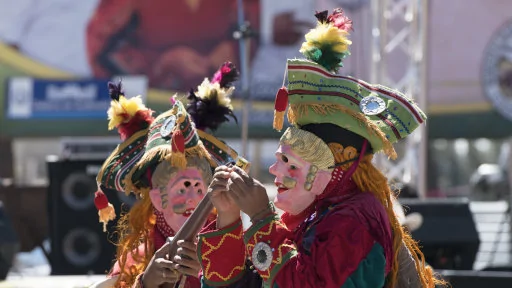Opinion Editorial Archive June, 2021: Not One of Us

When Spanish conquistadors first arrived in Mesoamerica, they told the indigenous population: "You're not one of us." And they were correct about that. The Maya and the Aztec were far too advanced to be one of them. The conquistadors were simply too prejudicial to see it.
Most of what's been written in the ensuing five hundred years does not reflect that initial history. Today, post-colonial governments in Mesoamerica continue to treat their indigenous populations as "not one of us." They continue to believe the big lie — even after so many generations — that a conquered people, and one that followed a false religion at that, must have somehow been, and must still be, inferior.
The actual history teaches us something different. The Spaniards were tactically astute in that they conquered partially through negotiation. But given their huge, one-sided advantages in terms of military superiority and resistance to old-world viruses, a 200-year occupation campaign can only be considered a failure.
After watching the Saturday Night Live sketch, "Will You Take It?" two months ago, I joked with a friend that no government would incentivize its people to get vaccinated against Covid-19 by offering them money.
Then, last month, I learned that I was wrong. The State of Ohio did exactly that. The potential prize money in the Ohio "Vax-a-Million" vaccine lottery, for the almost three million who have registered so far, is only $1 million. So the people there likely wish they were "one of us" in the State of New York, where the potential prize money in "Vax and Scratch" is $5 million. At the same time, they are probably happy not to be "one of us" in the State of New Jersey. The prize there is only a glass of wine. I wonder who decided that it should not be a ham sandwich.
I understand why, in the United States, this money is not spent on public education instead of lotteries. Still, at a time when most of the world's indigenous population is looking at a timeframe of years to get vaccinated, these lotteries are a mockery of the vaccine inequity in the world today.
We can learn from the history of Mesoamerica that an occupied people will resist their occupation as long as they are able. If we choose not to learn that lesson from a few hundred years ago, we can instead learn it from a few weeks ago. The only surprising thing about the war (yes, it was a war) between Israel and Gaza last month was that the ceasefire happened as soon as it did — especially given the huge, one-sided advantages in terms of military superiority and resistance to the coronavirus. The only surprising thing from the days since the ceasefire is that some are now talking seriously about a permanent peace deal, even though further skirmishes erupted within only a few hours.
That peace deal, of course, would require negotiation, which would involve dialog. My ham sandwich comment is not a joke. If educated people in New Jersey fail to recognize that offering a glass of wine is greater religious discrimination than offering a ham sandwich, what hope is there that similarly-educated people can have meaningful dialog in the Middle East? There, on both sides, religion is perhaps the greatest barrier to either side considering the other to be "one of us." Only one of their religions forbids alcohol while both forbid ham.
Let's hope that these same people are educated enough to know that Brüno Gehard is a fictitious character, and that his claim that hummus can bring about Middle East peace is intended to be humor. Otherwise, we may end up with a Middle East lottery wherein those who don't fire rockets on a given day can win a bowl of hummus.
This month's photo was taken at a Maya indigenous cultural festival in Guatemala. The indigenous Maya have survived since the Spanish created the Occupied Maya Territory. Bizarre as it seems, dressing as the occupying oppressor reminds them of this survival. It reminds them as well, perhaps, that no real dialog has taken place in hundreds of years.
A year ago, the Rio Tinto mining company destroyed a site in Western Australia that was sacred to the local indigenous people. Last month, though, both sides recognized that dialog is possible even when the other is "not one of us." That dialog, they realized, is necessary to stop similar, future destruction. If real peace is to be achieved in the Middle East, it will come because of projects such as "House of One." Last month in Berlin, the cornerstone was laid for a church/synagogue/mosque. It took a decade of dialog to get this far. But who would have ever thought that religions sharing the same God can also share the same house of worship? Not one of us.
The Maya indigenous cultural festival in Guatemala is featured in our documentary, Ancient and Modern Mayan Peoples.
If you enjoyed reading this month's opinion editorial, please consider supporting independent, advertising-free journalism by buying us a coffee to help us cover the cost of hosting our web site. Please click on the link or scan the QR code. Thanks!

